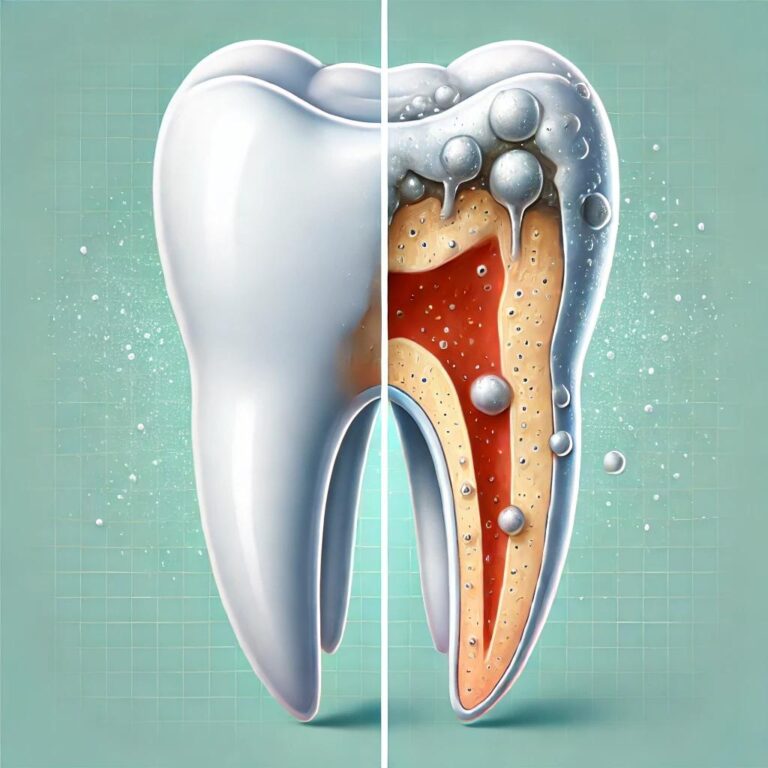A “hole” in the teeth, commonly known as a cavity or dental caries, is caused by tooth decay.
Here’s what leads to it:
Plaque Buildup: Plaque is a sticky film of bacteria that forms on the teeth when food particles, especially those high in sugars and starches, are left on the teeth. Bacteria in plaque feed on these particles and produce acids.
Acid Attack: The acids produced by plaque bacteria begin to erode the enamel (the hard, outer layer of the tooth). Over time, this erosion can create tiny openings or holes in the enamel.
Further Decay: If not treated, the decay continues deeper into the tooth, reaching the dentin (the softer layer beneath the enamel) and potentially the pulp (the innermost part of the tooth containing nerves and blood vessels).
5 contributing factors:
1. Poor Oral Hygiene: Not brushing and flossing regularly allows plaque to build up.
2. Sugary and Acidic Diet: Consuming foods and drinks high in sugar or acid increases the risk of cavities.
3. Dry Mouth: Saliva helps wash away food and acids. Reduced saliva flow, known as dry mouth, can increase the risk of cavities.
4. Lack of Fluoride: Fluoride helps strengthen enamel and prevent decay. Low fluoride exposure can contribute to cavity formation.
5. Tooth Grinding: Excessive grinding or clenching can wear down enamel, making teeth more susceptible to cavities.
Preventing cavities involves maintaining good oral hygiene, reducing sugar intake, using fluoride toothpaste, and visiting the dentist regularly for check-ups and cleanings.
Meanwhile, the Chairman of the Nigerian Dental Association, Oyo State Chapter, Dr. Adesola Odofin, in an interview with The Guardian , said “When you have good oral hygiene, it boosts your confidence. You need to pay attention to oral health. Brush your teeth twice daily. Prioritise regular dental check-ups, twice a year, because the health of the mouth is the health of the whole body.”
A Dentist and Health Systems Advocate, Dr. Toluwani Oluwatola, in an interview with The Nigeria Health Watch, said, “Poor awareness is one of the greatest challenges of oral health care in Nigeria. Many Nigerians regard the absence of pain as the gold standard of care.”


